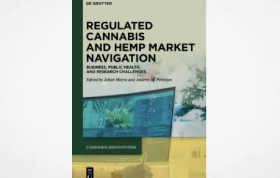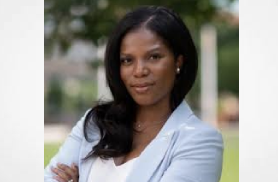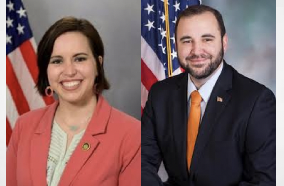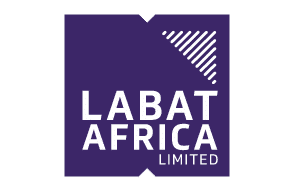CEO Brian van Rooyen says, ‘We are very excited about the future of cannabis, not only for South Africa, but for the continent’.
NOMPU SIZIBA: JSE-listed black-owned and ‑managed investment holding company, Labat Africa, is making moves to being a major player in the world’s booming cannabis economy. The company has announced having forged an exclusive distribution and supply agreement with global hemp and the CBD (cannabidiol) smokable brand Ace & Axle. It’s also acquired a 75% stake in Northern Cape-based Leaf Botanicals, which is a cannabis-growing and -cultivation facility that has been issued with a cultivation and exporting licence.
Well, to tell us more about their foray into this area I’m joined on the line by Brian van Rooyen. He’s the CEO at Labat Africa. Thanks very much Brian, for joining us. You are an investment holding company. Before you got into the cannabis space, what sort of companies have you been investing in?
BRIAN VAN ROOYEN: Oh, we’ve been in a whole range of companies. We have been into electronics, into logistics, into industrial, into mining; and now our focus has been on the medical area of cannabis.
NOMPU SIZIBA: Excellent. So presumably you’ve turned your sights to the cannabis industry as you see great potential. Where do you see the opportunities?
BRIAN VAN ROOYEN: Well, the opportunities are on the medicinal side, the healthcare side and of course the industrial side, because we’ve got an untapped market in South Africa when it comes to industrial cannabis. Hemp is part of the of the cannabis family that doesn’t contain any THC (the main psychoactive compound in cannabis). And recently various provincial government departments and the National Department of Agriculture are demanding that people start issuing permits for small-scale farmers to plant hemp.
The problem with that is that there is no hemp processing facility in South Africa – not one. And what Labat is doing is to set up a processing facility in South Africa and focus on three or four huge opportunities in the country. The first one will be the automobile industry in South Africa. In South Africa it uses close to R3 to R4 billion – according to the latest figures released by the Department of Trade & Industry – worth of hemp product. None of it is manufactured in South Africa. That’s just one.
NOMPU SIZIBA: Wow. So Brian, tell us specifically about the recent investment that you’ve made and why it appeals to you.
BRIAN VAN ROOYEN: Well, the recent investment is of course Leaf Botanicals. Why it appealed to us is that it’s in operation. The business is up and running. It had its second harvest already – close to about 1 000 kg, which is about one tonne of product. We are now getting ready for the export medicinal market, bearing in mind that South African legislation is very restrictive as to how you can deal with cannabis in South Africa.
In South Africa the only permits that are issued for cannabis at the moment are to plant, cultivate and export. You’re not allowed to extract any oils in South Africa. You’re not allowed to produce anything (from it) in South Africa, (which is) a bit of a problem in South Africa because if you go to Clicks today, or to Dis-Chem or Pick n Pay, you can buy CBD products off the shelf. But they are all imported.
NOMPU SIZIBA: Yes. That’s the interesting thing. Even when you go to shopping malls, you get those CBD (products).
BRIAN VAN ROOYEN: They are legal in terms of the Sahpra (the South African Health Products Authority) regulations. Now we are getting into the same problem that we have had for many, many years and decades in South Africa, where there’s no beneficiation. We have the best climate in the Northern Cape, and that’s why we did the deal with Leaf Botanicals in the Northern Cape. You can end up with two to three harvests a year, as opposed to one crop for any other sort of maize or potatoes or beans or cabbage or whatever. So we’ve got the best crops, we’ve got the best climate, we’ve got the best genetics in South Africa.
NOMPU SIZIBA: Tell me, Brian, have you ever discussed these issues with people in authority? The nonsensicalness of it is that we can consume these products, but we can’t necessarily make them. That just doesn’t make sense.
BRIAN VAN ROOYEN: That doesn’t make sense. We engage. There’s a move now to expedite the regulatory issues because cannabis is still a Schedule 6 substance in the Narcotics Act – and that’s a big problem.
Our biggest problem is not that; our biggest problem will be if they start willy-nilly dishing out hemp licences, which they should do for industrial purposes. There is no industry in South Africa to consume hemp. So what are the guys going to plant? They’re going to plant cannabis, dagga, and that will end up in the illicit market again.
And for us, we are saying yes, we will play in the pharmaceutical market because it has a high-grade THC content of about 25 to 35%. If you smoke that you sleep for a week (chuckling). And then there’s the other component, which is for industrial use, your plastics industry, your paper industry, your brick industry, your food industry. Hemp contains more Omega 3 and 6 than fish oil. It’s a thing that grows well in your garden.
NOMPU SIZIBA: Amazing. But now tell me, Brian, have you done the calculation? I mean, obviously you’re just one company, but what sort of game-changer could this be if the authorities were to open up things a bit more? What game-changer would this be for job creation?
BRIAN VAN ROOYEN: Job creation? Let me give you an example. One hectare of land – and these are the broad figures – three full-time jobs, direct jobs, and four indirect jobs. So seven per hectare. Three harvests a year will give any farmer between R150 000 and R200 000 profit per hectare of land. At the moment, if you do anything else, you’re talking R50 000, R60 000. That’s why your small-scale farmers cannot survive on it. With hemp you basically need a little bit of water because it’s a weed.
NOMPU SIZIBA: It just grows all by itself. I was going to ask you – what are the major cost drivers for that?
BRIAN VAN ROOYEN: Its major cost driver is obviously the offtake. We were part of the whole deal that Labat is getting involved in. We own a company called (Ace) Genetics. We’ve got over 150 strains of cannabis that can grow all over the country. We’ve got Genetics and we’ve got strains and we’ve got technical people with dreadlocks like a bride’s train at the back. So these guys understand cannabis. There’s virtually nothing. And if you’re going to do it only for CBD purposes, then obviously the security is not that big because for CBD and for industrial (purposes) it contains no THC.
Let’s just give that as an example. Let’s take the sugar industry. Two or three sugar mills have closed recently. What happened to all those small sugar-cane farmers that had 10 hectares or five hectares or 20 hectares of land?. Now everybody is saying, well, let’s plant cannabis or let’s plant hemp. That’s a good thing. What are you going to do with it once it’s grown, because there’s no hemp-processing facility? So Labat becomes the 1935 co-op, the ‘operasie’, where farmers will bring their crops. But they don’t need to bring them. We’ll go and fetch them. We’ll pay the transport cost, we will help them with setting up, getting their land cultivated. We’ll give them an offtake agreement so they can go to the Land Bank or whomever. Whoever has money left among those institutions can give them the money to do so.
NOMPU SIZIBA: Brian, you’re on a roll! Before I let you go, very succinctly, can you tell us your plans for the rest of the continent, because you say that you want to be a continental player.
BRIAN VAN ROOYEN: Let me tell you, we are already talking to people that have licences in Zimbabwe, in Malawi in the DRC and all that. You would also note that in our announcement we talked about smokable hemp – that we’ve got an exclusive right to provide smokable, which contains no tobacco, for healthcare for the whole of Africa for 10 years with an American company. So yes, we can talk about Europe and we can talk about America, but a little bit north we are sitting with three billion people ourselves.
NOMPU SIZIBA: Exactly, don’t forget that.
BRIAN VAN ROOYEN: Don’t forget that. So we are very excited about the South African and the African market. We are obviously talking to our partners all over. Some of the countries have moved much more quickly than the South African legislators have in terms of the regulatory issues, and it is a problem. The other day we saw black farmers protesting at Sahpra, saying that licences are going only to white companies. The issue is it is very, very expensive, and that’s why we’ve invested a lot. We haven’t made a lot of money, but our investment has further slowed down because of Covid and the continuous lockdowns; but we are getting out of it.
We are very excited about the future of cannabis, not only for South Africa, but for the continent.
NOMPU SIZIBA: That was Brian van Rooyen. He’s the CEO at Labat Africa.

















